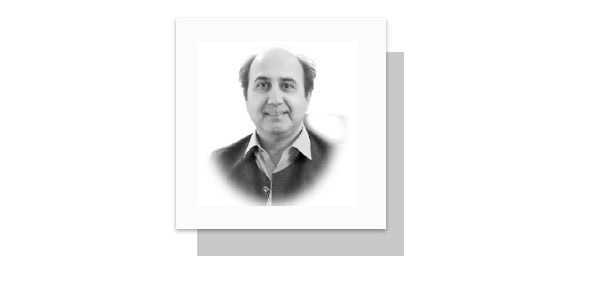DEMOCRACY, in its essence, is more than just a system of governance, it is a reflection of a society’s maturity, the collective yearning of its people for representation, justice, and the rule of law.
For Pakistan, a nation born out of a vision of justice and dignity, the road to democracy has been neither linear nor easy. It has been interrupted, challenged, and at times, even reversed. Yet, the will to persevere remains intact. The return to democratic governance in 2008, after years of military dominance, marked a profound turn in Pakistan’s political history, not as an end in itself, but as a beginning of a long and intricate transition.
To speak of democracy in Pakistan is to speak of endurance. The elections held in 2008 were not just procedurally significant; they were symbolically vital. They took place under the shadow of deep institutional suspicion and a past marred by coups and constitutional overreach. And yet, they happened. They were, by most accounts, relatively free and fair, a testament to the growing capacity and credibility of the Election Commission of Pakistan. The peaceful exit of President Pervez Musharraf after these elections was a significant moment, not of defeat, but of institutional respect, setting the stage for civilian supremacy.
However, one fair election does not make a democracy. The 2008 transition to civilian rule marked a milestone, but the years that followed tested Pakistan’s political resilience. True democracy is not defined solely by holding elections, it rests on the consolidation of fundamental freedoms, institutional integrity, and genuine accountability. It requires the continuity of governance rooted in reform, inclusive dialogue, and political stability. Most critically, democracy demands a gradual but firm retreat of military influence from civilian affairs, coupled with the parallel strengthening of democratic norms within political parties, the judiciary, media, and the bureaucratic structure of the state.
The process of democratic consolidation, as understood in political science, is deemed complete only when all major political actors commit to operating within democratic rules, accepting outcomes regardless of personal or party gain. In Pakistan, this ideal remains aspirational. While progress has been made evident in the peaceful transfer of power through successive civilian governments, assertive judicial interventions, and a vibrant, often unrestrained electronic media, the democratic spirit continues to grapple with deep-rooted challenges. Legacies of military authoritarianism, the persistent influence of religious extremism, and fragmentation across state institutions hinder the development of a stable democratic culture. Thus, Pakistan’s democratic journey remains uneven, fragile, and incomplete.
One of Pakistan’s gravest challenges remains the enduring presence of militant networks, occasionally overlapping with elements of the state. Operations like Zarb-e-Azb, Radd-ul-Fasaad and Azm-e-Istihkaam led to a 90% decline in terror incidents, yet the ideological infrastructure of extremism remains largely intact. Over 80,000 Pakistanis have lost their lives to terrorism since 2001. Without dismantling radical narratives and ensuring unambiguous civilian supremacy over security policymaking, the spectre of militancy risks resurfacing in ever-evolving forms.
Between 2008 and 2024, Pakistan’s democracy has continued to evolve. According to the Economist Intelligence Unit’s Democracy Index, Pakistan scored 4.25 in 2023, classifying it as a hybrid regime,indicative of electoral activity but marred by institutional weakness and civil liberties constraints. Nonetheless, this marks a measurable improvement over earlier decades, and signals a growing democratic consciousness. Over 128 million voters were registered for the 2024 general elections, with youth participation higher than in any previous cycle, an encouraging sign for democratic vitality.Yet democracy cannot thrive in a vacuum. It requires strong institutions to anchor it and a political culture to sustain it. In Pakistan, the emergence of a dynamic, often critical media, increased judicial emphasis on transparency, and an increasingly vocal civil society are all signs of a maturing democratic ethos. Notably, the country’s youth, making up nearly 64% of the population, are more connected, informed, and expressive than ever before, thanks to digital platforms and expanding educational access. Their engagement is reshaping political discourse across the country. Pakistan’s democratic future, therefore, does not lie solely within the traditional corridors of power, but also in classrooms, community gatherings, and online spaces where civic consciousness is being formed and contested daily. Their voice will define tomorrow’s democracy.
To complete the democratic transition, Pakistan must now invest in institutional reforms that ensure transparency, efficiency, and inclusion. The military must continue to support constitutional civilian supremacy while maintaining national security. Judicial reforms must enhance speed, impartiality, and accessibility. The parliament must rise above personality politics to focus on long-term national interests. Political parties must democratize internally, promoting merit over patronage. Most importantly, the state must guarantee the protection of fundamental human rights, ensuring that no voice is silenced through fear, violence, or censorship. Pakistan’s journey toward democratic consolidation is not a failed experiment, but an ongoing struggle filled with milestones and lessons. It is not a tale of darkness, but one of gradual dawn. Democracy in Pakistan is alive, resilient, challenged, yet moving forward. What it needs now is not despair, but discipline; not cynicism, but civic participation. Through collective will, institutional responsibility, and an unwavering belief in democratic values, Pakistan can indeed write a new chapter in its history, one where democracy is not only practiced, but truly lived.
—The writer is PhD in Political Science, and visiting faculty at QAU Islamabad.
(zafarkhansafdar@yahoo.com)


















